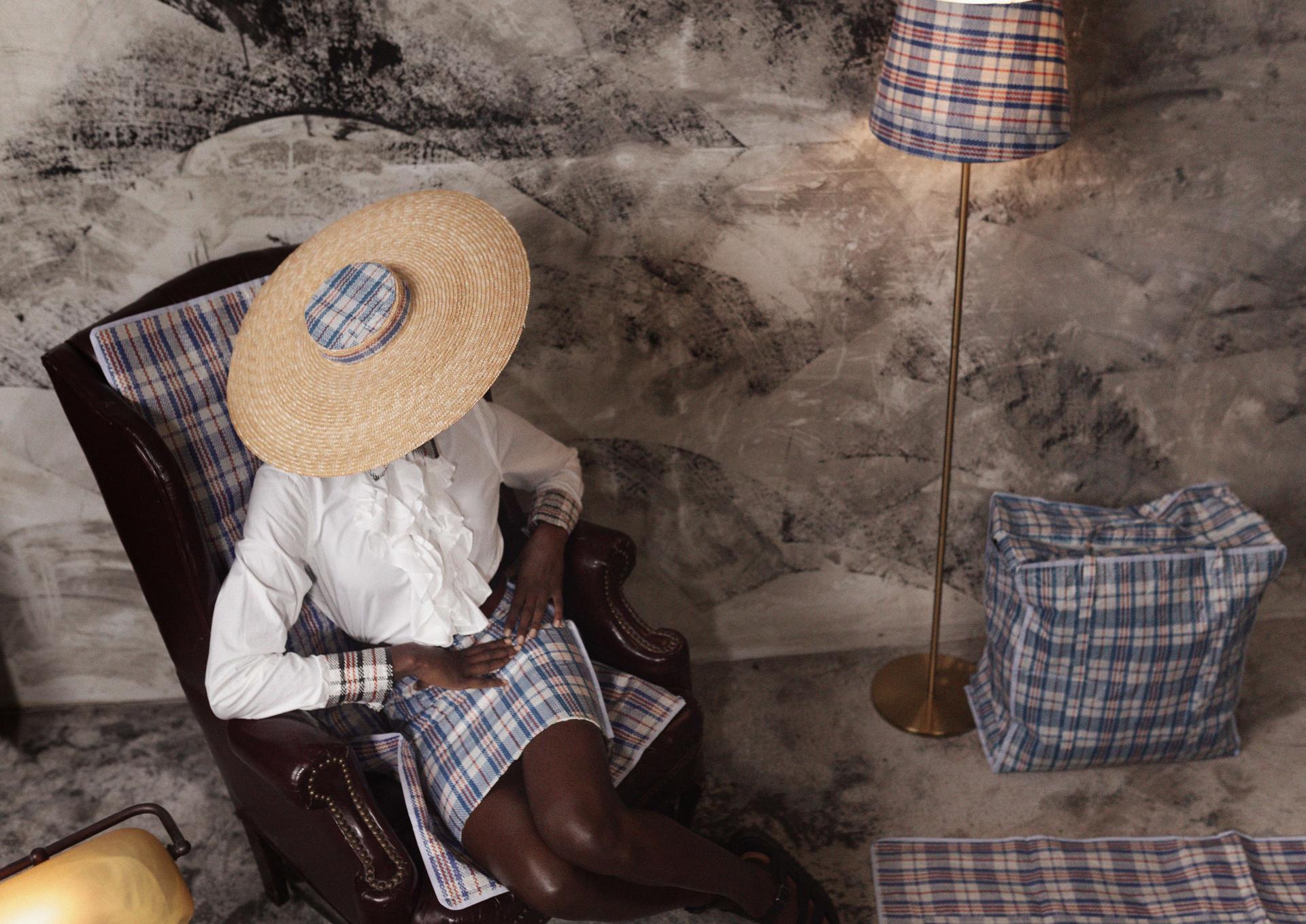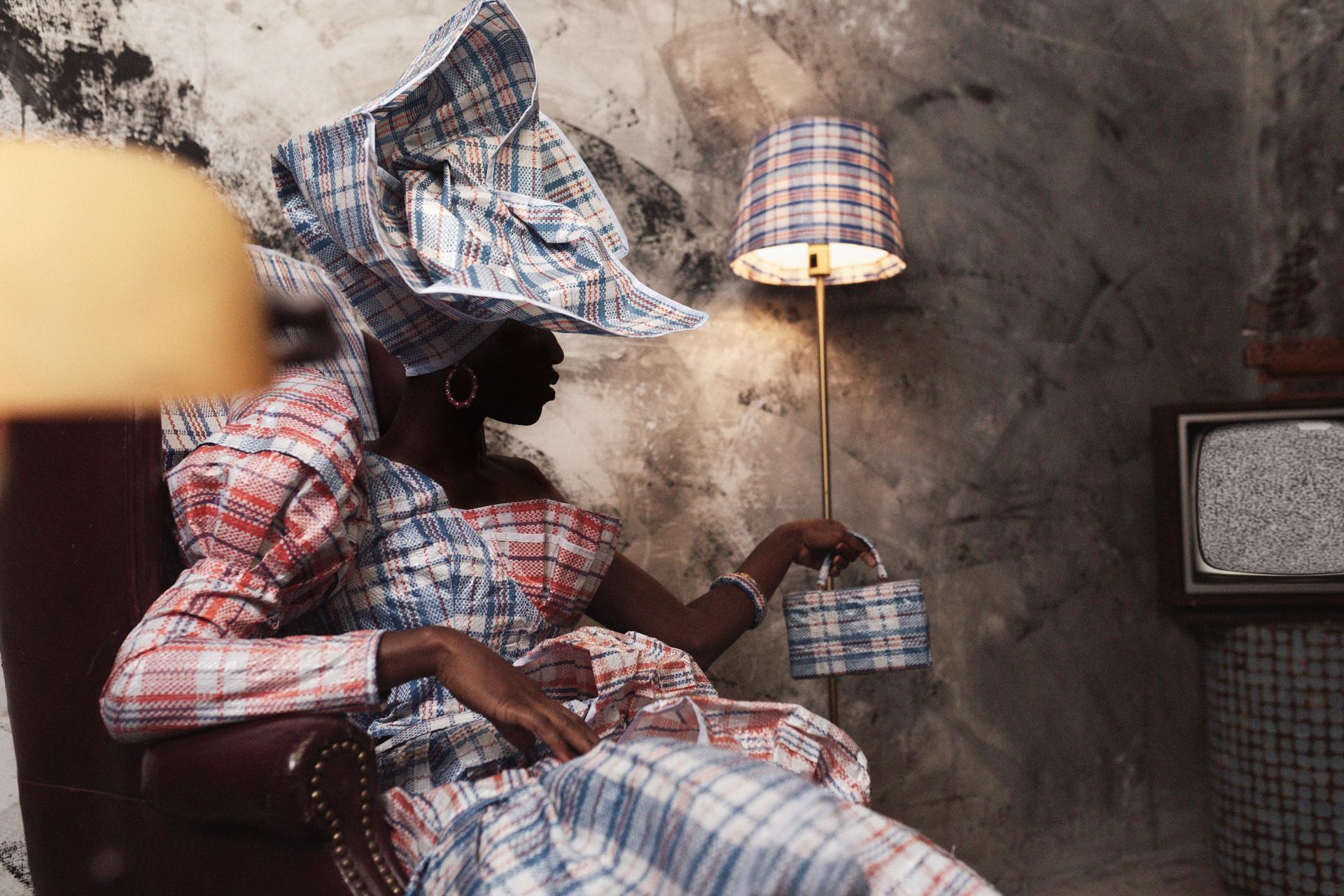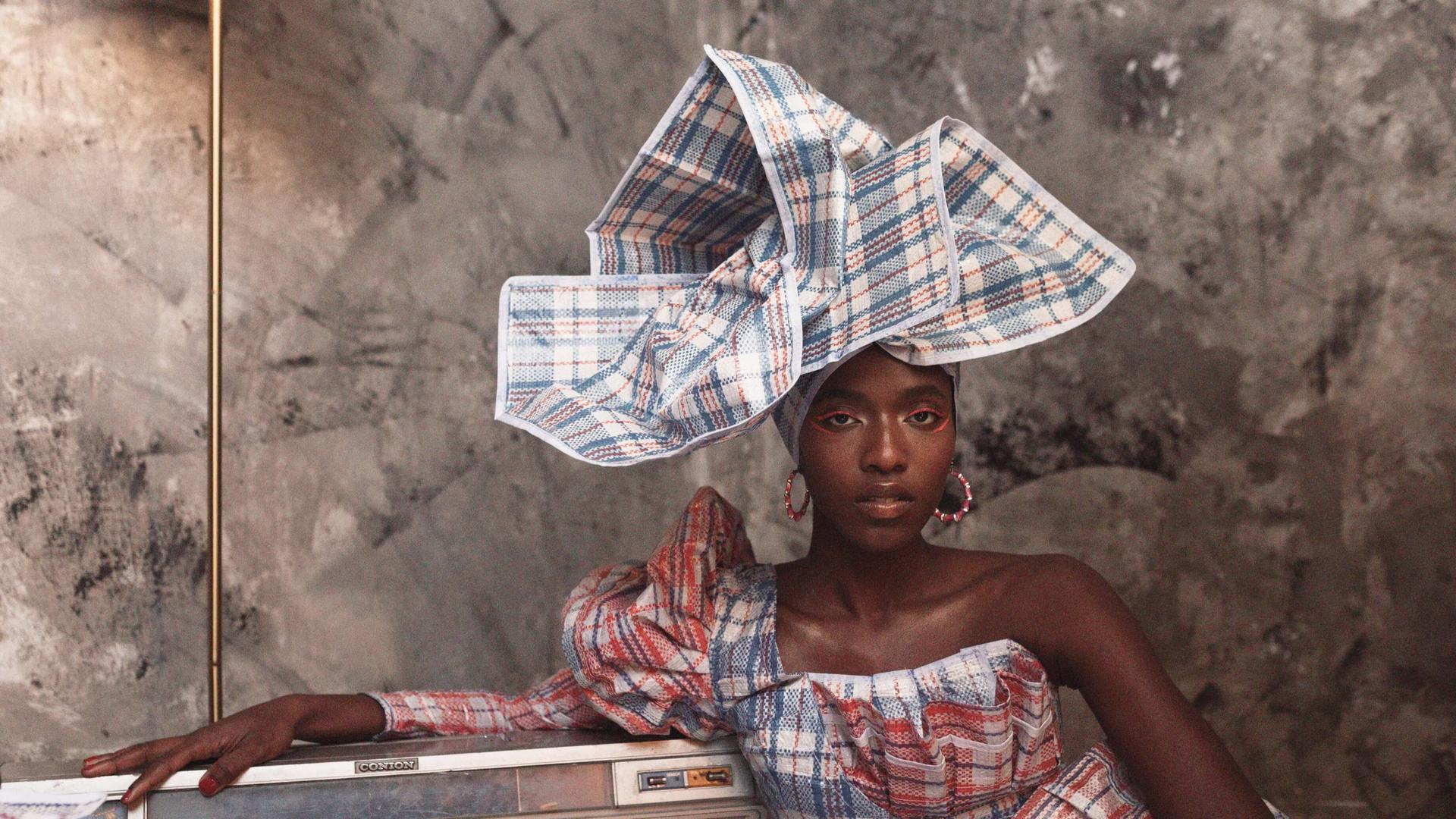At first glance, the photos look like something out of a fashion magazine — glamorous models wearing beautiful, structured clothes with towering, elaborate head wraps and hats on their heads.
But look closer, and you might notice something else: These clothes are made of plastic bags.
Specifically, they’re made from a plaid, woven plastic bag iconic in West Africa and worldwide. Regionally, they’re known as the “Ghana Must Go” bag. In his photography project “Anyi N’Aga” — or “We Are Going” in Igbo, one of the languages of Nigeria, New York-based Nigerian photographer Obinna Obioma transforms these bags into a powerful narrative about migration.
Related: Why ‘fast fashion’ might need to slow down

“I remember my family and I would use the bags to pack up stuff and travel back to the village to see my grandparents. As I got older and I moved to the UK, we also used those bags to carry some of my stuff there,” Obioma told The World.
“I remember at the airport seeing the bags being used by other people. And I remember questioning my parents — like, what are these bags called? Because they were very popular and they were very striking. It’s not something you can miss, because of the colors, it’s very vibrant.”
“I remember at the airport seeing the bags being used by other people. And I remember questioning my parents — like, what are these bags called? Because they were very popular and they were very striking. It’s not something you can miss, because of the colors, it’s very vibrant,” he continued.
Related: Finding resistance in fashion, Kashmiri creator turns to the pheran
The bags, with their graphic red-and-white and blue-and-white patterns, lend themselves well to being refashioned into high-fashion pieces. But the name of the bags, Ghana Must Go, has a painful past: it comes from a 1983 executive order from Nigeria’s then-President Shehu Shagari, calling for nearly 2 million undocumented migrants, many Ghanaian, to abruptly leave the country. Many used the bags to transport their things and the name stuck over the years.
“It’s almost derogatory when you speak on saying Ghana Must Go. It’s almost xenophobic in a way. I did question that: Should the bags even still be called Ghana Must Go? Because it’s kind of negative,” Obioma said.
Working with artist and designer Chioma Obiegbu and fashion stylist Wuraola Oladapo, Obioma instead chose to use the bags to tell a story about nostalgia, homesickness, and what people bring with them — and leave behind — when they move from place to place.
For example, in “Anyi N’Aga,” the bags appear not only in the clothes, but also in snippets in the background — on a lampshade, or in a picture frame, for example. That was intentional, says Obioma.

“When I had to move to the UK, I took parts of my memories of Nigeria and parts of my culture, as well, to England. And when I had to move to America as well, I did the same thing.”
“When I had to move to the UK, I took parts of my memories of Nigeria, and parts of my culture, as well, to England. And when I had to move to America as well, I did the same thing,” he said.
“When you move, you don’t just move yourself — you also move with your memories and culture and I guess you kind of implant those things where you are and you influence the people around you as well with your culture and beliefs when you move,” he continued.
Related: Will a German investment in Ghana’s youth slow down migration?
Obioma said he’s received messages from people all over the world who have seen pieces of their own migration story reflected in the work.
“I think it ties into the whole point of why I picked up the camera in the first place,” he said. “My work is primarily about African heritage and identity. For me to be able to translate these narratives to a broader spectrum of people who can also relate to it, just showed me how impactful images and photography can be,” he said.
